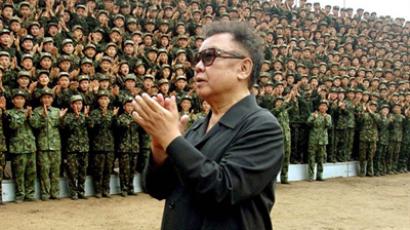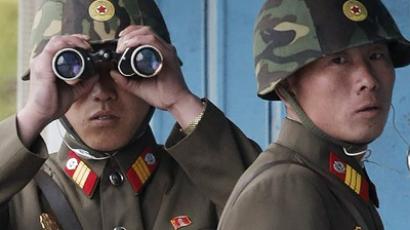‘US and S. Korea should reconsider approach to Pyongyang’
The first thing North Korea's neighbors did after learning of Kim's death was raise their military alert status. Christine Hong from the US-based Korea Policy Institute says this is because the region is still structured by a neo-Cold-War alignment.
“When you are talking about North Korea’s neighbors, you are talking specifically not about China, but you are talking about Japan and South Korea, and if you are speaking about China, you are speaking about China’s response to these two nations,” she told RT. “The US and its two client-states, South Korea and Japan, are linked together in a kind of mutual defense pact, a kind of premise that has them tied in terms of common security agenda.”Historically, Japan and South Korea have been linked to the USA, Hong went on to explain, and both have very little vision with regard to North Korea – a characteristic of the Obama administration too.“It’s these states that had high security alert, and you could say that China’s was very much a response to that response, in part, of Japan and South Korea,” she said.With all that, the analyst points out that Kim’s death could be the perfect opportunity for some countries, particularly the United States and South Korea, reconsider their approach to Pyongyang.“It’s even a symbolic opportunity with the death of Kim Jong-il,” Christine Hong said. “North Korea, historically, has been – as a very small country that has been fighting for its own sovereignty and autonomy – it has been reacting to external forces around it. At this moment North Korea has a year-old request to the US and to the EU and other international bodies, etc., and they’ve asked for food aid… the US is in the position to act on this request at this moment.”Hong noted that there is also a popular sentiment in South Korea that views the lack of vision and engagement, as well as a positive leadership on the part of South Korean President Lee Myung-bak, toward North Korea. All these factors are destabilizing relations between the two states.At the same time, she continued, polling among South Koreans demonstrates a rejection of the hardline stance of the current president.“If that is the case, it bodes well for the possibility of some of the kinds of connections that were made during the two previous presidential administrations in South Korea,” Christine Hong concluded.














